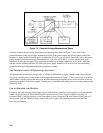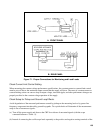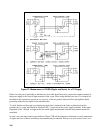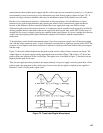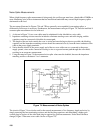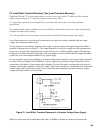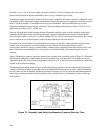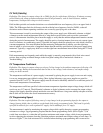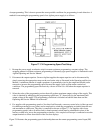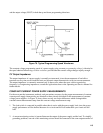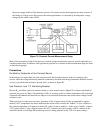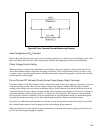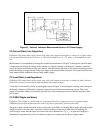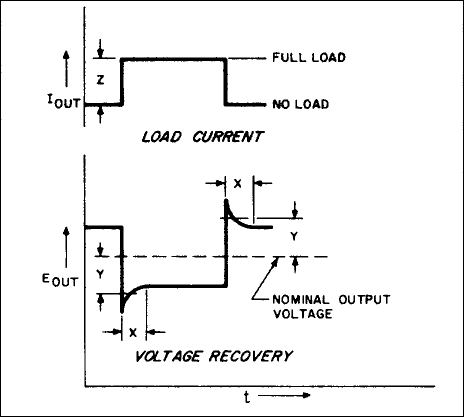
109
CV Load Effect Transient Recovery Time (Load Transient Recovery)
Definition: The time "X" for the output voltage to recover and to stay within "Y" millivolts of the nominal
output voltage following a "Z" amp step change in load current, where:
"Y" is specified separately for each model but is generally of the same order as the load regulation
specification.
The nominal output voltage is defined as the dc level half way between the steady state output voltage before
and after the imposed load change.
"Z" is the specified load current change, typically equal to the full load current rating of the supply.
Load effect transient recovery time may be measured at any input line voltage combined with any output
voltage and load current within rating.
If a step change in load current is imposed on the output of a power supply, the output voltage will exhibit a
transient of the type shown in Figure 75. The output impedance of any power supply rises at high frequencies,
giving rise to an equivalent output inductance; if the load current is switched rapidly enough so that the high
frequencies associated with the leading edge of the step change can react with this effective output inductance,
a spike will occur on the output terminals of any power supply.
It is not possible to specify the amplitude of an output voltage spike caused by a load current change unless the
rise time of the load change is first established. A power supply with an effective output inductance of 0.16
microhenries will exhibit a load transient spike of about 0.16 volts if the load is switched with a rise time of 1
amp/µsec, but the spike amplitude will be only 160µV if the load is switched at 1 amp/millisecond. In this latter
case the output spike would not be evident, since it would be small compared to the static change in output
voltage associated with the full load change.
Figure 75. Load Effect Transient Recovery of a Constant Voltage Power Supply
While an oscilloscope with a bandwidth of the order of 100KHz is adequate to observe and measure the




